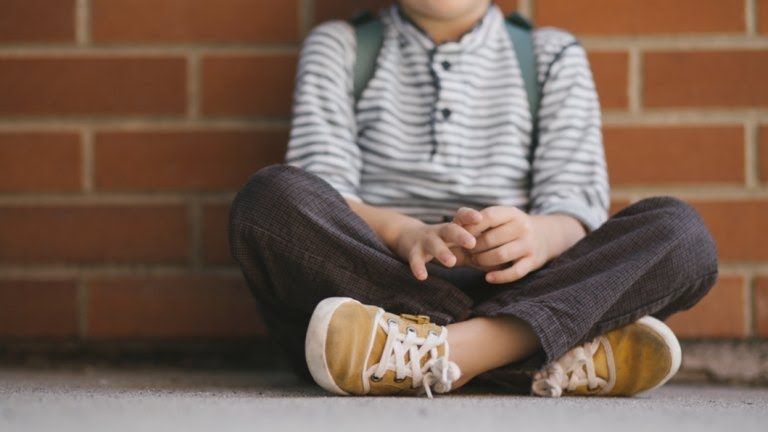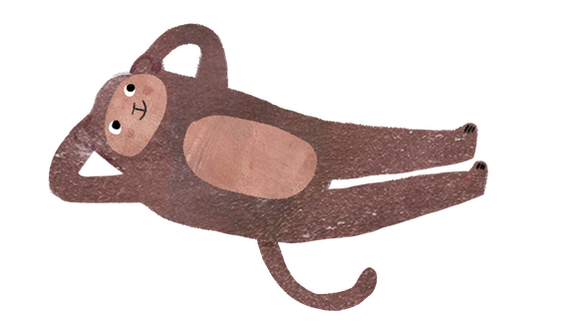|
by Kasey Edwards, Sydney Morning Herald, interview with Georgina Manning
A new approach to treating childhood anxiety being trialled by Yale Medical School has flipped the standard treatment by focusing on parents rather than children. The Supportive Parenting for Anxious Childhood Emotions (SPACE) study starts from the premise that over 97 per cent of parents who have an anxious child accommodate their child’s anxiety by changing their own behaviours to help their child not feel anxious. "Even with the best treatments currently available, about half of all children remain highly anxious after treatment," says Dr Eli Lebowitz from Yale Medical School. “Anxious children naturally rely on parents when they are feeling scared, frightened or stressed and parents naturally want to help their children feel better,” says Dr Eli Lebowitz who is Director Program for Anxiety Disorders from the Yale Medical School Child Study Center. “But sometimes the things we do as parents to help our children feel less anxious in the moment can actually make them less likely to overcome the anxiety over time." My first response to hearing about the study was “Great — now we can add our kid’s anxiety to the long list of things modern-day mothers are doing wrong”. Fortunately, Dr Lebowitz is emphatic that his program is not an exercise in blaming parents. “It is very important to emphasise that parents are not the cause of childhood anxiety disorders,” says Dr Lebowitz. “It is simply that childhood anxiety is a problem of truly staggering proportions and even with the best treatments currently available, about half of all cases remain highly anxious after treatment. So we are always looking for more and different ways of helping anxious children and their families." Beyond Blue reports seven per cent of children aged 4 to 17 years in Australia suffered from an anxiety disorder in the past 12 months. The incidence of childhood anxiety is alarming. Beyond Blue reports that seven per cent of children aged 4 to 17 years in Australia suffered from an anxiety disorder in the past 12 months. Further, one in five of all young people aged 11 to 17 years experience high or very high levels of psychological distress. Melbourne-based child anxiety expert and director of Wellbeing for Kids Georgina Manning agrees that new approaches to treating anxiety in children are needed — and that includes helping parents to understand that accommodating their child’s anxiety can also enable it. “I have coached many parents to support them to make sure their child still goes to camp, even though they feel anxious, to speak at assembly even if they don’t want to, to go back to school after a hard day with friends the day before and so on,” says Manning who also runs a program for parents to support their anxious children, called Peaceful Parents. As any parent knows, there is nothing worse than seeing your child in distress. It's hardly surprising that we want to minimise it. But protecting children from the immediate distress they are feeling may lead to even greater anxiety in the future by inadvertently reinforcing the belief that the problem the child fears really is as bad as they think it is. Our intervention also dis-empowers them because we are essentially telling our children that they are not skilled or strong enough to deal with the problem on their own. “The more we encourage avoidance, the more we are saying to our child that the thing they are anxious about should be avoided because firstly they won’t be able to cope and secondly, the problem or situation is too hard for a child to manage,” says Manning. Rushing in too soon to protect our children from distress is also unsustainable. Life gets hard some times, we all feel uncomfortable emotions, and our kids need to develop the capacity to deal with these unpleasant feelings and confront their fears. This doesn’t mean that we turn off our empathy and tell our kids that they are effectively on their own now. “It is vital that parents can tune into their child’s emotions, understand how they feel, name the emotion for the child, but not necessarily ‘fix’ the emotion,” says Manning. If you do have an anxious child, the advice of Yale’s Dr Lewbowitz is to start small. Pick one way you might be accommodating your child’s anxiety and plan specific changes to your approach. While it may be painful for both your child and you at first, you may be giving your child the life-long gift of learning to master their anxiety
7 Comments
12/1/2021 05:34:46 am
The conventional approach to treating children with anxiety is to treat the child. However, a new study shows that this may not be effective because parents are often the ones who enable their children's anxiety in the first place. In fact, one of the most common triggers for childhood anxiety disorders is when parents unintentionally model anxious behavior themselves.
Reply
2/11/2022 02:55:29 am
One day, my three children were playing on their own in the back yard. They were running around and playing with each other, but their mother was sitting at the kitchen table spooning a bowl of cereal. Her children were in the living room, playing and having fun. Her husband was home from work and they were happy. They hadn’t planned on staying there long and they both wanted to go back to their jobs at the office.
Reply
2/11/2023 02:08:10 am
New approach to children's anxiety treats parents instead of children - anxiety, the most common mental disorder in all children, affects the behavior and performance at school. What bothers such children is not just concentration and attention, but also mood swings, crying spells and a feeling of helplessness. These disorders may lead to a lot of difficulties with parents, teachers and friends.
Reply
11/18/2023 04:11:34 pm
Want to raise your grades in nursing school, but don't know where to start? This service offers professional essay writing help. A team of experts is waiting for you here, ready to create a high-quality essay in the shortest possible time, which meets all the requirements of your educational institution. If you are not satisfied with some aspects, you can always use the unlimited editing service and make the work exactly as you want it to be. Do not waste time, trust professionals and achieve excellent results in your studies.
Reply
1/19/2024 12:36:49 am
I found this post to be incredibly inspiring. Your personal anecdotes and insights made it relatable and engaging. Looking forward to reading more from you!
Reply
5/7/2024 08:48:56 pm
I've been exploring various online destinations recently, and there was this one particular platform that genuinely caught my attention. I've spent hours delving into its rich content. It's been an absolute game-changer for me. The user-friendly interface and easy navigation are just icing on the cake. Let me tell you, it's totally worth your time. You can explore it here. It's a great place to spend some time, learn new things, and it has certainly been a rewarding experience for me. I believe you would find it equally fascinating.
Reply
Leave a Reply. |
|
PEACEFUL KIDS
|
© Wellbeing For Kids Pty. Ltd. All rights reserved. Suite 159 179 Queens Parade Clifton Hill VIC 3068 Australia [email protected] |

 RSS Feed
RSS Feed
